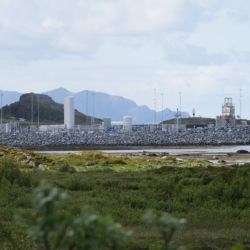-
Study
-
Quick Links
- Open Days & Events
- Real-World Learning
- Unlock Your Potential
- Tuition Fees, Funding & Scholarships
- Real World Learning
-
Undergraduate
- Application Guides
- UCAS Exhibitions
- Extended Degrees
- School & College Outreach
- Information for Parents
-
Postgraduate
- Application Guide
- Postgraduate Research Degrees
- Flexible Learning
- Change Direction
- Register your Interest
-
Student Life
- Students' Union
- The Hub - Student Blog
- Accommodation
- Northumbria Sport
- Support for Students
-
Learning Experience
- Real-World Learning
- Research-enriched learning
- Graduate Futures
- The Business Clinic
- Study Abroad
-
-
International
International
Northumbria’s global footprint touches every continent across the world, through our global partnerships across 17 institutions in 10 countries, to our 277,000 strong alumni community and 150 recruitment partners – we prepare our students for the challenges of tomorrow. Discover more about how to join Northumbria’s global family or our partnerships.
View our Global Footprint-
Quick Links
- Course Search
- Undergraduate Study
- Postgraduate Study
- Information for Parents
- London Campus
- Northumbria Pathway
- Cost of Living
- Sign up for Information
-
International Students
- Information for International Students
- Northumbria and your Country
- International Events
- Application Guide
- Entry Requirements and Education Country Agents
- Global Offices and Regional Teams
- English Requirements
- English Language Centre
- International student support
- Cost of Living
-
International Fees and Funding
- International Undergraduate Fees
- International Undergraduate Funding
- International Masters Fees
- International Masters Funding
- International Postgraduate Research Fees
- International Postgraduate Research Funding
- Useful Financial Information
-
International Partners
- Agent and Representatives Network
- Global Partnerships
- Global Community
-
International Mobility
- Study Abroad
-
-
Business
Business
The world is changing faster than ever before. The future is there to be won by organisations who find ways to turn today's possibilities into tomorrows competitive edge. In a connected world, collaboration can be the key to success.
More on our Business Services-
Business Quick Links
- Contact Us
- Business Events
- Research and Consultancy
- Education and Training
- Workforce Development Courses
- Join our mailing list
-
Education and Training
- Higher and Degree Apprenticeships
- Continuing Professional Development
- Apprenticeship Fees & Funding
- Apprenticeship FAQs
- How to Develop an Apprentice
- Apprenticeship Vacancies
- Enquire Now
-
Research and Consultancy
- Space
- Energy
- AI Futures
- CHASE: Centre for Health and Social Equity
- NESST
-
-
Research
Research
Northumbria is a research-rich, business-focused, professional university with a global reputation for academic quality. We conduct ground-breaking research that is responsive to the science & technology, health & well being, economic and social and arts & cultural needs for the communities
Discover more about our Research-
Quick Links
- Research Peaks of Excellence
- Academic Departments
- Research Staff
- Postgraduate Research Studentships
- Research Events
-
Research at Northumbria
- Interdisciplinary Research Themes
- Research Impact
- REF
- Partners and Collaborators
-
Support for Researchers
- Research and Innovation Services Staff
- Researcher Development and Training
- Ethics, Integrity, and Trusted Research
- University Library
- Vice Chancellors Fellows
-
Research Degrees
- Postgraduate Research Overview
- Doctoral Training Partnerships and Centres
- Academic Departments
-
Research Culture
- Research Culture
- Research Culture Action Plan
- Concordats and Commitments
-
-
About Us
-
About Northumbria
- Our Strategy
- Our Staff
- Our Schools
- Place and Partnerships
- Leadership & Governance
- University Services
- Northumbria History
- Contact us
- Online Shop
-
-
Alumni
Alumni
Northumbria University is renowned for the calibre of its business-ready graduates. Our alumni network has over 253,000 graduates based in 178 countries worldwide in a range of sectors, our alumni are making a real impact on the world.
Our Alumni - Work For Us
The climate emergency, decolonisation, reduced aid budgets and the aftermath of the Covid-19 pandemic are challenging the ideas and practices of development organisations whose work has been structured around sending volunteering from the global North to the South. At the same time, there has been growing attention to the role of volunteers within their own communities, particularly in the global South, and innovations in the ways international volunteering is understood, structured and supported within and across global North and South.
This collaborative PhD between the International Forum for Volunteering in Development (Forum) and the Centre for Global Development (CGD) at Northumbria University will develop research that explores the changing relationships between volunteering and development at this critical juncture. By analysing how organisations working with volunteers are responding to these challenges, the PhD will also contribute to wider academic debates around the present and future of humanitarian and development thinking and practice, including in relation to the roles of civil society organisations, ideas of knowledge and expertise, and understandings of agency and citizenship.
Through a collaborative approach between Forum and Northumbria University, this three-year research project will provide an opportunity to work closely with leading volunteering and development organisations, developing critical insight that will directly support policy and practice, as well as developing new conceptual knowledge of volunteering and development.
This blog series will provide regular updates on the research project, highlighting progress, key focus areas, and valuable insights gained throughout the collaborative PhD journey.
1) Click the link below to read the first blog, introducing the project and the series:
- Blog edition #1 (March 2025): Clark, J. (2025). Transforming volunteering in development: Project introduction. Northumbria University. https://doi.org/10.25398/rd.northumbria.28581542
2) Click the link below to read the second blog in the series, focusing on research ethics. It provides an introduction to the key principles and how ethics should be applied in formal research but also in less formal data collection exercises. It also outlines the benefits of embedding ethics principles into evidence gathering and offers some useful resources for practitioners:
- Blog edition #2 (May 2025): Clark, J. (2025). Transforming volunteering in development: Considering ethics. Northumbria University. https://doi.org/10.25398/rd.northumbria.28730543
3) Click the link below to read a blog co-authored by Janet Clark, James O'Brien (Forum) and Prof Matt Baillie Smith (Northumbria University), published by Bond, the UK network for organisations working in international development. The blog explores the differences between voluntourism and volunteering in development, and explains why this distinction matters:
-
Clark, J., O'Brien, J., & Baillie Smith, M. (2025). International volunteering in development: why it isn't voluntourism and why this matters. Bond. https://www.bond.org.uk/news/2025/11/international-volunteering-in-development-why-it-isnt-voluntourism-and-why-this-matters/
Three-year PhD Summary Timeline*
| PhD YEAR | STAGE | ACTIVITIES |
|
YEAR 1 |
Application and admission |
|
| Initial research and induction |
|
|
| Literature review |
|
|
| Project approval |
|
|
| Design for scoping phase |
|
|
| Ethical approval for scoping fieldwork |
|
|
| Scoping fieldwork |
|
|
| Production of policy outputs |
|
|
| Revisit literature |
|
|
| Annual progression |
|
|
|
PhD YEAR |
STAGE | ACTIVITIES |
| YEAR 2 | Design methods |
|
| Ethical approval for fieldwork |
|
|
| Fieldwork |
|
|
| Analysis |
|
|
| Literature review |
|
|
| Production of policy outputs |
|
|
| Annual progression |
|
|
| PhD YEAR | STAGE | ACTIVITIES |
| YEAR 3 | Write up |
|
|
Submit thesis |
|
|
|
Production of policy outputs |
|
|
|
Viva Voce examination (oral defence of the thesis) |
|
|
|
Thesis corrections |
|
*Table key:
- Bold - Research activities
- Underlined - External policy outputs
- Italics - Internal research processes
Short Bio of the PhD Researcher
Janet Clark is a researcher in the Centre for Global Development (CGD) at Northumbria University. Her research experience spans volunteering, development, inequality and social justice. She has recently worked in the Volunteering, Climate Adaptation and Disasters (VOCAD) research activities, part of the UKRI-GCRF Living Deltas Research Hub wider collaborative project. This project explores the ways in which individuals and organisations mobilise labour in their approaches to crisis response and adaptation. Prior to this role, Janet has previously worked for VSO, Saferworld and the UK Ministry of Justice, as well as a range of UK statutory and civil society organisations. Her research has been used to inform the design and development of volunteering programmes and interventions, and in some instances to inform policy. Janet has conducted volunteer-focused research in community, clinical and prison settings in many contexts and has expertise in engaging marginalised and excluded groups in research processes in the UK and in a range of countries in Africa, South Asia and Asia Pacific.
To find out more, please contact Janet Clark (PhD Researcher), Prof Matt Baillie Smith (Northumbria University) or James O'Brien (Forum).
Projects
- Pollinating Insects for Sustainable Livelihoods in the Peruvian Amazon
- Adapting Crisis Responses to Salt-Droughts in Vietnam
- WAVES
- Women's collective action and gender just transitions
- State of the World's Volunteerism Report
- DignArte Cimarrona: Tackling Racialised Gender-Based Violence
- Transforming Volunteering in Development
- Volunteering at Habitat
- Sajag-Nepal
- Small-scale Private Development Initiatives
- Volunteering in the Indian Sundarbans
- Blackness in Resistance
- Four Women
- Diasporic communities and the climate crisis
- Towards Unlearning Colonialism in Development Research and Practice
- Reference Guide on Volunteering
- Poetics of Diplomacy
- RECLAMA
- Asia-Pacific ClimateScapes
- Wildlife Trade Futures
- VSO Blended Volunteering
- Diaspora groups, civil society and development
- IFRC Volunteering Policy Study
- Refugee Youth Volunteering Uganda (RYVU)
- Living Deltas
- ViCE
- Women and photography
- REMATCH
- Proactively Living with Floods
- Global Review on Volunteering
Latest News and Features

Royal Honour as leading researcher awarded Polar Medal
Professor John Woodward has been awarded The Polar Medal in recognition of his outstanding…

Northumbria University leads pioneering research to tackle hidden lead exposure in children
Pioneering research launches in Leeds to test new approach to assessing the risk to children…

International students at Northumbria embark on FA Cup dream
A team of international college students studying at Northumbria University could soon find…

Northumbria expands results day support for students
Northumbria University is expanding and enhancing the support it provides to students receiving…

Supporting the ethical development of UK spaceports
A Northumbria University academic is helping to ensure the UK’s ambitions to build a thriving…

Research reveals Arctic region was permafrost-free when global temperatures were 4.5˚C higher than today
Scientists have found evidence that the Asian continent was free of permafrost all the way…

Northumbria wins recognition for expanding access to higher education
Northumbria University has been named Higher Education Institution of the Year at a prestigious…

Satellites observe glacier committing “ice piracy”
A glacier in Antarctica is committing “ice piracy” – stealing ice from a neighbour – in a phenomenon…




